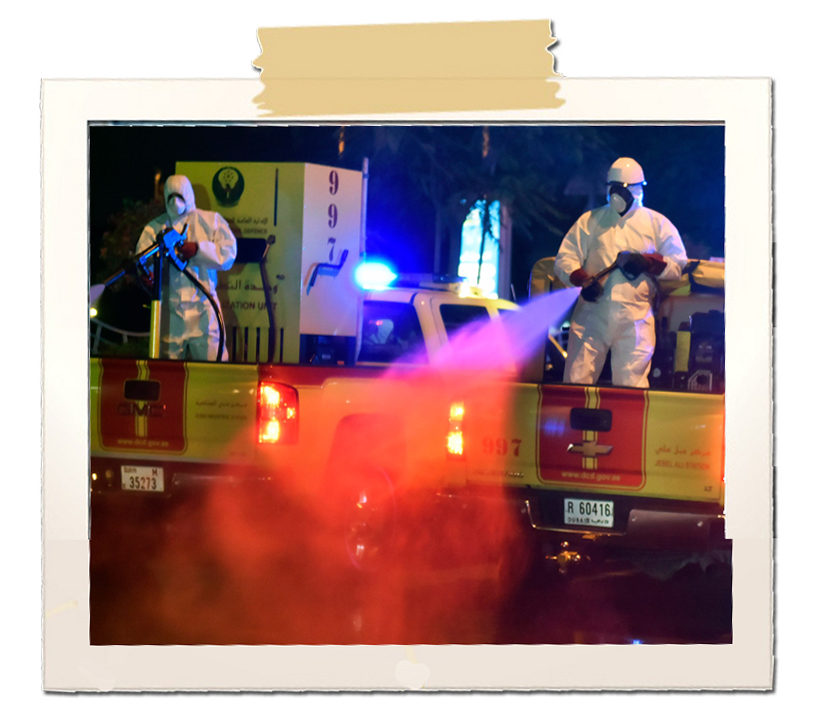When disinfection made a difference
The UAE organised all-night sterilisation programmes nationwide. Hotspots were sealed off for complete disinfection, a move that not only held these communities, but also the entire country in good stead.

Clint Egbert/Gulf News
Dubai Municipality workers carry out the National Disinfection Programme on Jumeirah Road on March 27, 2020.
The nationwide disinfection programme announced by the Supreme Committee of Crisis and Disaster Management on March 26 was a turning point in the early combat against coronavirus.
Unlike other countries which called it a lockdown, the UAE refrained from imposing one, preferring instead to restrict residents’ movements while it disinfected and sterilised the streets.
The strategy worked well, with an online permit system being introduced in Dubai, Abu Dhabi and Sharjah. Residents could venture out of their homes only for essential purchases, besides medical emergencies. The stay-at-home directives were mandatory and violators, who could be caught through radars, were liable for fines and legal action.
The all-night sterilisation programme, which was extended on March 31, turned into a 24-hour campaign for two weeks starting April 4. Hotspots like Naif and Al Ras in Deira were sealed off for a complete disinfection over a period of two weeks, a move that not only held these communities, but also the entire country in good stead.
Residents were also mandated to wear face masks and gloves and follow social distancing measures if they had to go out under unavoidable circumstances.
And public transport services like the metro, tram and intercity bus operations were suspended until further notice.